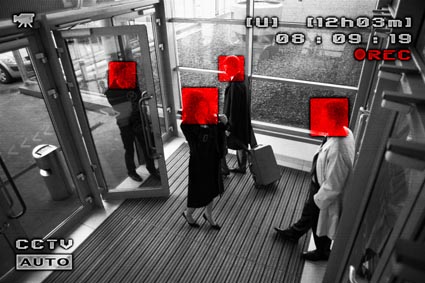Soft Target
Surreptitious eavesdroppers go for the softest target they can find to access their workstation, papers, live conversation, vehicles, electronics, phones and friends.
A dishonest employee will attempt to cover their tracks by using another employee’s electronics or passcodes.
You may be targeted as the best method of bugging the business because:
- Perhaps you are seen as the only decision maker, the key player, or gatekeeper of all the critical information
- They perceive you as weak link and easily manipulated
- They think you are lax, or oblivious to security threats
- You are messy, disorganised, and talk loosely about company affairs
- You have access to sensitive information, of your own, and others
- They have something on you they think they can blackmail you with
- They know they have considerable influence on you (like, love, infatuated)
- You look stressed or distracted
- They think you do not care about security
- You do not get TSCM sweeps conducted at least yearly
Why do people spy on other people?
Humans are complex creatures who may not want to admit it, but they will always act within their own best interests at all times. Emotion drives behaviour so a raft of feeling will drive criminal behaviour as:
- Addiction: gambling, alcohol, drugs, sex, lifestyle, ego,
- Desperation: financial troubles, blackmail,
- Stress: life’s pressures drive people to steal
TSCM is generally viewed by the public as “White Collar crime” and not easily understood by law enforcement, and is hard to prove. Many offenders when caught justify their actions to the authorities, and say they didn’t think it was a big deal.
As there should be no difference from robbing a bank with a gun; to stealing millions of dollars’ worth of research and design intellectual property, there seems to be in the eyes of the law.
You have a fiduciary duty to protect your business and family. Decide not to be a victim who thought it would not happen to them.
Who has opportunity to get “On target” to install the bug?
- Employees – either for personal gain like promotion or a bribe, or blackmail
- Service staff: cleaners, security, IT dept., building services, electricians, plumbers, phone company – these people move around unnoticed
- Friends – control freaks, jealousy, for fun, – “can I just borrow your phone? I’m out of power…”
- Visitors – to business or home – suppliers, contractors, deliveries (coffee, parcels, catering)
- Break and enter – these people such as Private investigators/ mercenaries/ Law Enforcement will enter usually when there are the least amount of people.
- Family – family always justify why they bug each other – well if my spouse/ child was not doing anything wrong they have nothing to worry about etc…






















